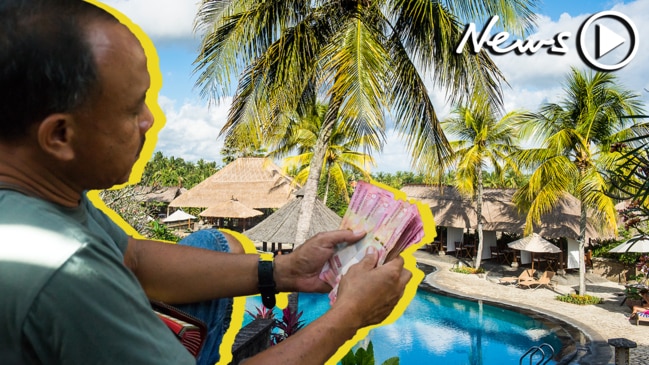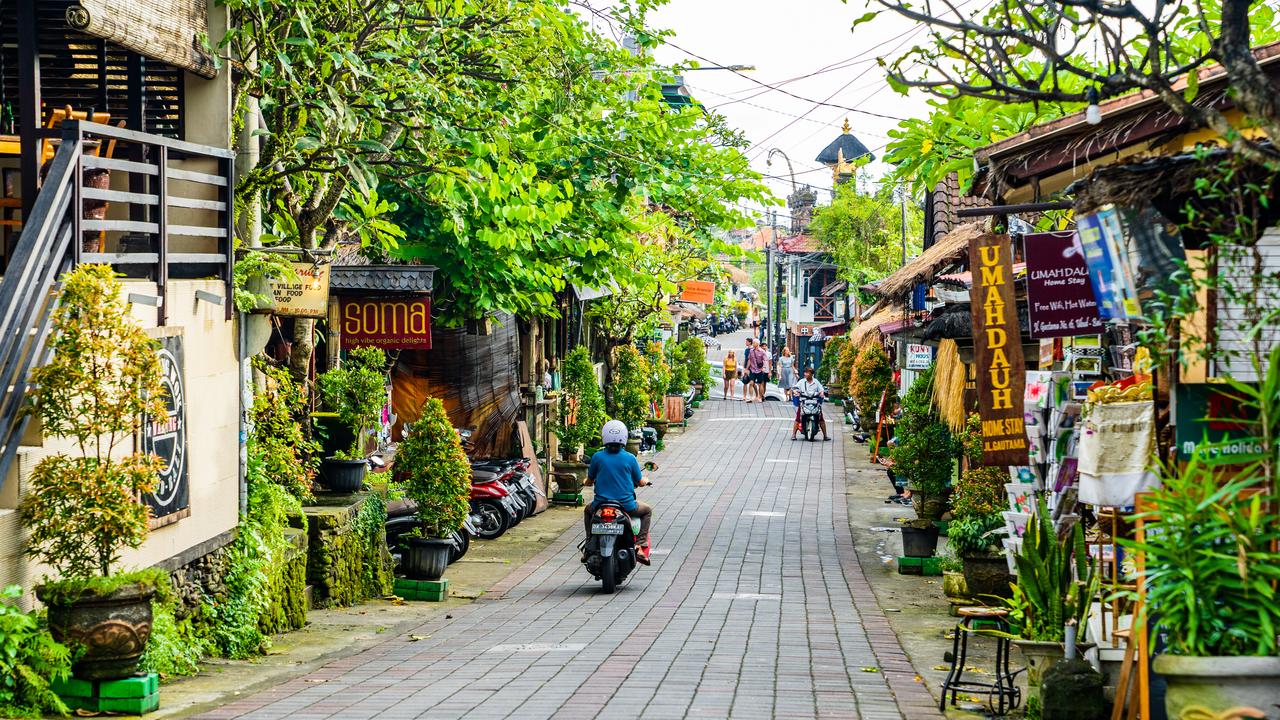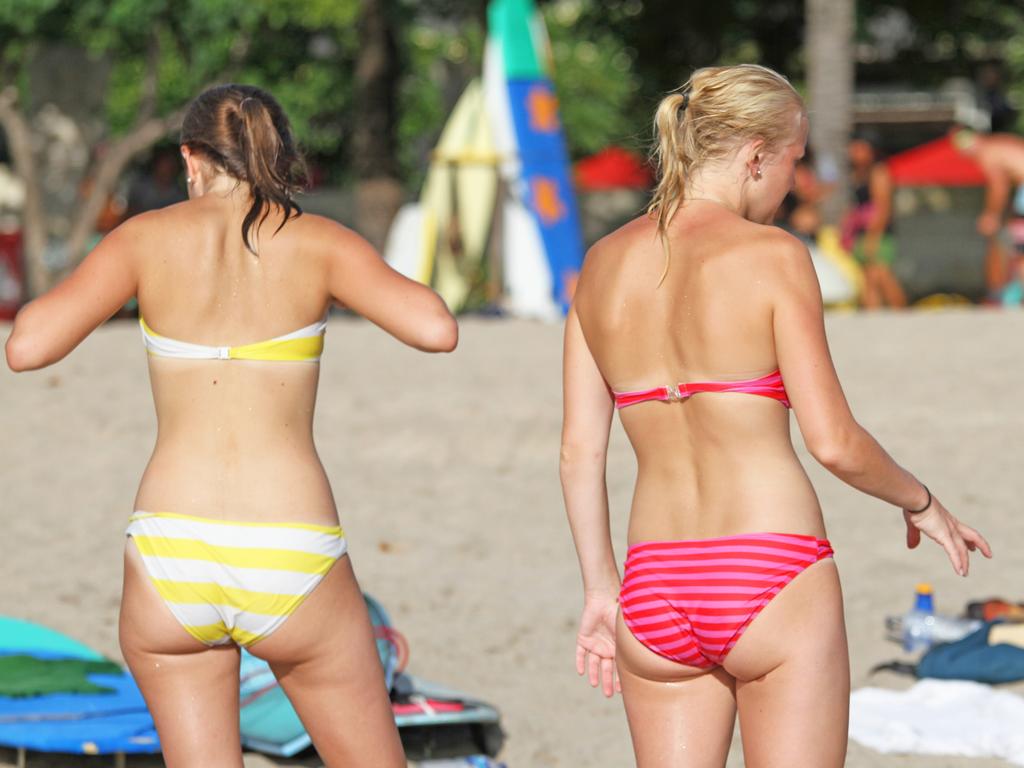Warning over Bali ‘coin scam’ targeting Australian tourists
An Australian woman has warned fellow tourists travelling to Bali about a scam targeting Aussies with many having already fallen victim to it.

An Australian woman has warned fellow Aussies travelling to Bali about a “coin scam”.
The tourist posted a warning in a local travel group for Australians visiting the popular island about the scam.
Her post has since attracted more than 1200 ‘likes’ with many Aussies revealing they too have been targeted, sharing similar stories.
The woman explained that a known family, not local to Bali, goes around asking Australians if they can look at their money in an attempt to steal their wallets.
“The guy came up to us and asked if we knew of a good Italian restaurant to go to and I was trying to think of the one near our hotel,” the traveller wrote.

“He said ‘are you not Indonesian?’ (we look far from it) and I said ‘No Australian’ he then shook our hands and said ‘Do you have an Australian dollar coin’ he could look at.
“I said ‘We aren’t showing you our money mate we have heard about your scam.’
“Well they took off like a bat out of hell. Thank goodness for ‘Bali Bogans’ pre warning us,” she said, referring to the name of a Facebook page.
The woman said the incident took place at Lippo Mall in Badung, a regency of Bali.
“They never stayed around for me to take my phone out and take a photo,” she continued.
“He is very friendly and convincing and if you didn’t know about this con, being a Aussie you would be happy to show him.
“He said he was from Saudi Arabia, my husband said his wife had a lot of make up on and was in Arabic clothing. I didn’t see her as she was behind me.”

Another traveller said he almost fell victim to the same scam in Legian – a suburban and beach area on the west coast of Bali.
“They approached us too. We were in circle K next to the Stones Hotel, Legian,” the Aussie man explained.
“He introduced himself and said he was from Saudi Arabia and with his daughter.
“He told us he was visiting Melbourne soon. He showed us his gold watch and asked us what time it was where we came from.
“He flashed his wallet full of notes and asked if he could see our money. His daughter was behind my wife distracting her and asking her about a product. Luckily I said ‘no’ to showing him our money and we walked away. They left the shop pretty fast after that.”
The man said it was “very upsetting” for the victims of these scams and warned fellow Aussies to be careful after some mentioned they didn’t know about it.

A woman said her and her husband had $100 stolen after being conned by the couple.
“Same happened to hubby and I in Sanur at night,” an Aussie woman wrote. “They wanted to know what Aussie money looked like …
“She was distracting me saying my colour lipstick was nice, meanwhile hubby showed him and we were missing $100.
“I put a post up immediately [about it].”
Todd Nelson, managing director of Cover-More Australia said it was essential Aussies learn about common tourist scams ahead of their trips.
“This will help ensure you can recognise a scam if – or when – a scammer approaches you while on holiday,” he told news.com.au.

He said while violent crime in Bali was low, tourists can be attractive targets for petty crimes like pickpocketing and snatch-and-grab thefts in urban areas.
Angus Kidman, travel expert at Finder, said no matter where you’re travelling, being cautious with your wallet and cash was essential.
“Pickpocketing and theft are always a risk in any popular tourist area,” he told news.com.au.
“If someone asks to see your Australian money, an easy response is ‘not carrying any mate – don’t need Aussie currency here.’
“Don’t ruin your trip with paranoia – just exercise sensible basic precautions.”
According to Cover-More, other common travel scams in Bali include taxi drivers and monkey thieves at popular temples.
“Don’t negotiate fares with unofficial taxi drivers as they may use tactics like a broken meter, take a longer route, or charge far above the going rate. Take a reputable, official taxi instead,” Cover-More advises.
It also recommends to watch out for “cheeky macaques” who will snatch unattended belongings from tourists.
“Often, locals will ‘help retrieve your things’ … but for a fee.”
Currency exchange scams are also common with Cover-More advising to be aware of “official” looking money exchanges that will advertise a great rate, but offer the wrong change, miscount your money or handover invalid banknotes.
“Use ATMs or travel cards where possible to avoid being scammed,” it advises.






